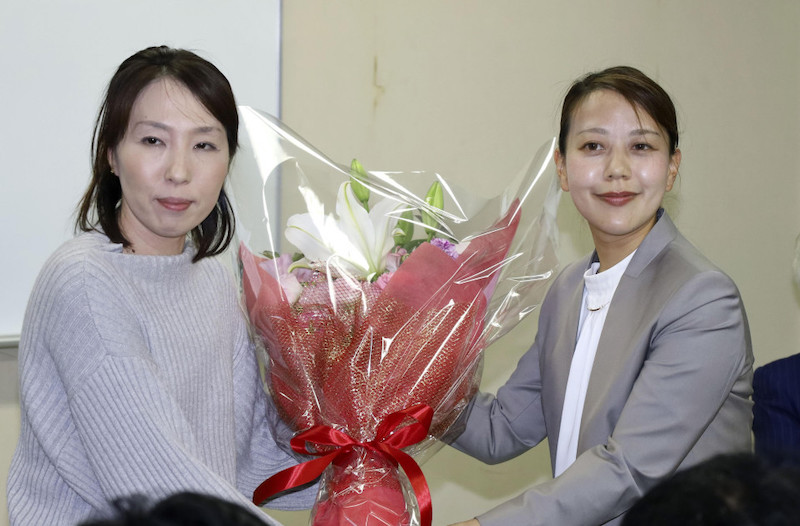Mayor at 33: the victory of Shoko Kawata and Japanese women
Japan ranks 116th out of 146 countries in the gender equality index and despite the progress made in the last 10 years, it is still very difficult for women - amid prejudice and misogyny - to make their way in politics. It is in this socio-cultural context that Shoko Kawata was elected first citizen of Yawata, the youngest to hold this office.
Kyoto (AsiaNews/Agencies) - According to the association of mayors of Japanese cities, 33-year-old Shoko Kawata - former social worker and secretary of a deputy of the Liberal Democratic Party (LDP) in Kyoto prefecture - has become the youngest mayor ever of Japan after winning the elections on Sunday in Yawata, a city of over 72 thousand inhabitants.
Kawata ran as an independent candidate, supported by the Liberal Democratic Party (LDP) and beat Ken Ogata, 43, a former member of the prefectural assembly and member of the Japan Innovation Party, and Yuko Kameda, 62, a former member of the assembly citizen who ran for the Japanese Communist Party.
Originally from Nara, Shoko Kawata worked as a social worker in Kyoto since 2015 and then followed Akiko Santo, member of the House of Councilors of the LDP governing Kyoto prefecture, as secretary. Kawata ran with one main campaign goal: to create a platform of free medical care for children up to 18 years of age.
The news of her victory had a national echo because Japan, despite being the third largest economy in the world, has a record gender gap. In the most recent report published by the World Economic Forum in July 2022, the Land of the Rising Sun ranked 116th out of 146 countries.
The growth in the presence of women in Japanese politics can be attributed to former Prime Minister Abe Shinzo who in 2013 defined women as "the least exploited resource in the country" and set the goal of increasing the number of female figures in positions of leadership.
Following his so-called "Womenomics", Abe inserted 7 women out of 18 positions of government ministers in 2014: a record, then. In May 2018, a law was approved which aims at gender equality in politics and which asks political movements to nominate 50% of male politicians and 50% women.
This is a non-binding rule for parties, but aimed at achieving gender equality in the National Diet and local governments. The first elections held after the approval of this law were the local ones in April 2019 and out of 59 municipal elections, the office of mayor was won by women in six cases.
About 12.7% of those who participated in the elections for the prefectural assemblies were women, and women won 10.4% of the seats.
The road to gender equality is still long but Shoko Kawata has clear ideas about her approach to city government as the youngest new mayor in Japan: “I want to empathize with people of all generations and work to create a community that can grow," he said.
The previous holder of the “youngest female mayor record” was Sawako Naito, elected mayor of Tokushima in 2020 at the age of 36, while the youngest male mayor elected in Japan is Ryosuke Takashima appointed last April at the age of 26 in Ashiya, Hyogo Prefecture.
Photo: Shoko Kawata (right) accepts a bouquet of flowers after winning the mayoral election of Yawata, Kyoto Prefecture (KyodoNews)
24/08/2018 09:48
05/06/2023 17:18
27/09/2017 10:13
04/07/2018







.png)










